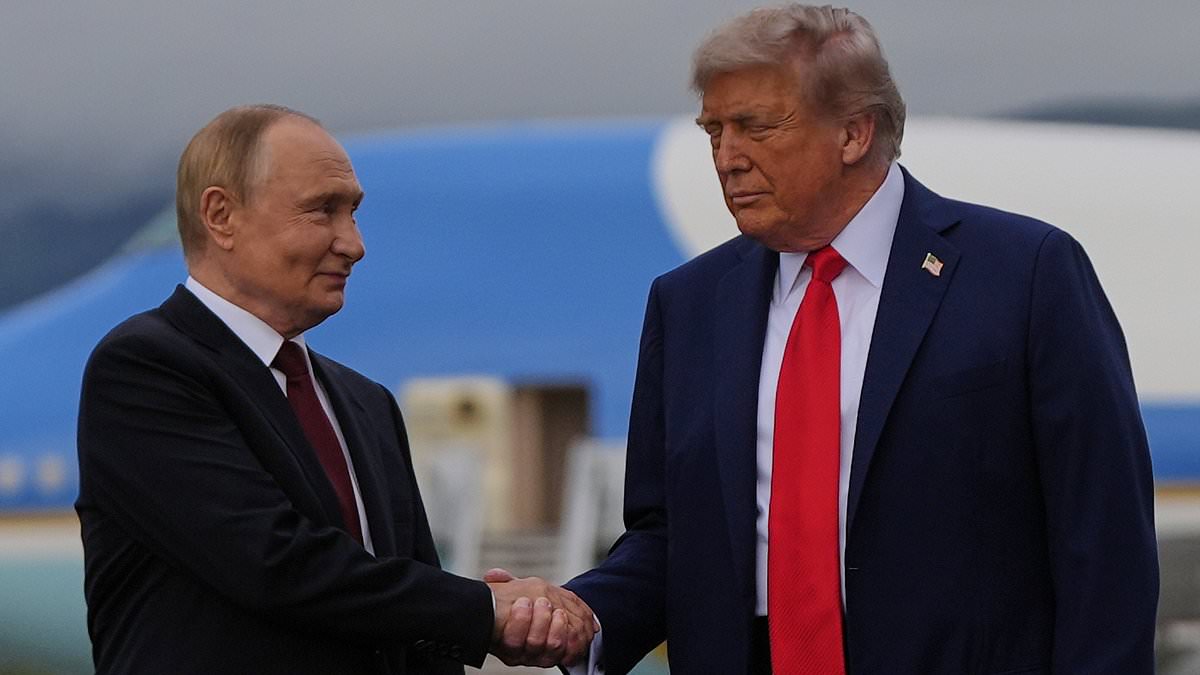
The intricate details of a high-profile luncheon between former US President Donald Trump and Russian leader Vladimir Putin have come to light, offering a fascinating glimpse into state dining—despite the event never taking place. It was reported that the meal was intended to conclude their pivotal summit at Joint Base Elmendorf-Richardson in Anchorage, Alaska.
The Menu That Could Have Been
The planned menu included a selection of dishes designed to reflect regional flavors with an elegant twist. Guests would have started with a light and refreshing green salad accompanied by champagne vinaigrette, setting the tone for a sophisticated meal. The main course featured a dual offering: filet mignon with a bold brandy peppercorn sauce and Alaska’s iconic Halibut Olympia, served alongside buttery whipped potatoes and roasted asparagus. For dessert, the dignitaries would have enjoyed crème brûlée—a timeless classic.
What Is Halibut Olympia?
Halibut Olympia is a local Alaskan classic that combines the robust flavors of fresh halibut with a creamy onion-based sauce and golden, buttery breadcrumbs. Known for its homey yet indulgent appeal, the dish strikes a balance between comfort food and culinary sophistication. As Jeremy Pataky of Edible Alaska noted, though it may not be classified as haute cuisine, it encapsulates the unique intersection of Russian and Alaskan seafood traditions.
Want to experience the flavors of Halibut Olympia at home? Try this Halibut Olympia recipe featuring authentic Alaskan halibut.
The Security Breach Controversy
While the luncheon itself did not materialize as the summit ended prematurely, a major controversy ensued when sensitive documents, including the menu, were discovered at Hotel Captain Cook in Anchorage. These documents not only revealed the menu but also contained logistical information, such as meeting times, precise locations, and even private phone numbers of US government employees. Alarmingly, it also included American officials’ phonetic guides to pronouncing Russian names, such as “Mr. President POO-tihn.”
The documents, reportedly left in a hotel printer, were leaked to the press, sparking criticism of the Trump administration’s handling of confidential information. National security expert Professor Jon Michaels described it as a glaring lapse in judgment, a sentiment echoed by many in both the political and journalism spheres. However, the White House dismissed the incident, downplaying it as merely a misplaced menu with no security implications.
The Fallout
The revelation of these sensitive documents has put a spotlight on the protocols governing high-level meetings and the meticulous planning—or lack thereof—that goes into state occasions. Monica Crowley, the then-chief of protocol and a trusted Trump ally, has faced significant scrutiny for the breach. Nevertheless, the legacy of this summit now intertwines with a culinary “what could have been,” a tantalizing glimpse into diplomacy served on a plate.
Conclusion
Although the meal never took place, Halibut Olympia has undoubtedly captured public interest as a symbol of the planned grandeur of the US-Russia summit in Alaska. Whether experienced in fine dining or recreated at home, dishes like this connect us to the broader narratives of culture, geography, and diplomacy.
If you’re inspired to bring a touch of Alaska into your kitchen, don’t miss the opportunity to explore Alaska Seafood’s recipe collection for even more culinary delights!



